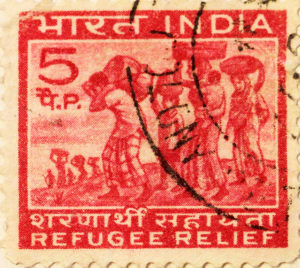
We are pleased to share a recent article written by one of our former ICKCBI Student Fellows Shreya Sen. She is currently a Doctoral Fellow at the Department of South and Southeast Asian Studies at the University of Calcutta. Sen’s latest piece is titled Understanding the importance of a national legislation for refugee protection in India. Sen argues that “the establishment of a domestic protection regime for refugees is of utmost necessity” in India, noting that only some kind of a formal mechanism can truly respond to the “interests, concerns and requirements of refugee and asylum seeking groups residing in India.” Sen agues one way to do this is by incorporating the UN Convention on Refugees into India’s legal framework, a move which she argues would require establishing a national law for refugees that would be able to respond to and help asylum seekers.
Here is an excerpt from her piece.
India is not a signatory to the 1951 UN Convention on Refugees or it’s Protocol of 1967. There is also no uniform national legislation that caters to the well-being of refugees in India. Policies adopted for refugee welfare in India are usually ad-hoc in nature, their implementation depending entirely on the whims and fancies of the political parties in power. Yet India has been home to refugees for nearly seven decades, with asylum seekers arriving in large numbers from as far and wide as the African nations of Sudan, Democratic Republic of Congo and Somalia as well as from neighboring South and Southeast Asian countries like Myanmar, Nepal, Afghanistan, Bhutan, Bangladesh and Sri Lanka and from East Asian countries such as China.
This paper looks to assess the importance of domestic legislation for refugee protection in India through: 1) a discussion of India’s international humanitarian obligations, with particular reference to its reluctance to accede to the 1951 Refugee Convention; 2) an examination of the prevailing legal conditions for refugees in India; and 3) a scholarly analysis of the various ways in which national legislation can benefit the refugee population in India. In conclusion, this paper argues that the establishment of a domestic protection regime for refugees is of utmost necessity, as it is only such a regime that can successfully respond to the interests, concerns and requirements of refugee and asylum seeking groups residing in India.
You can read the full post online at Rights in Exile.
